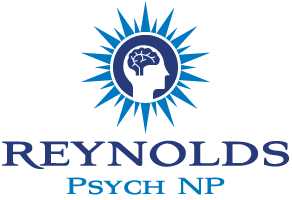No mental illness is easy to live with. But if we’re asking what the hardest mental illness to live with is, that opens up a much deeper conversation. It’s not about ranking pain or trauma. It’s about looking at the lived experience, how a condition affects someone day-to-day, and what kind of support (or lack of it) exists around it.
People often toss around names like depression or anxiety because they’re widely recognized. And yes, they’re incredibly difficult in their own right. But when you sit with people, when you hear their stories and understand what they’re carrying, it becomes clear that some conditions can make the world feel unlivable.
If you’re wondering where to start your journey toward healing, an Initial Psychiatric Evaluation can be the first step in understanding what you’re facing.
The Mental Illnesses That Break People in Silence
Many mental illnesses carry shame. But some? They carry isolation, misunderstanding, and even fear, not just from the people who experience them, but from society. This is often what makes something the hardest mental illness to live with.
Here are some that consistently show up as the most brutal:
- Schizophrenia
- Borderline Personality Disorder (BPD)
- Bipolar Disorder I (especially with psychosis)
- Severe Obsessive Compulsive Disorder (OCD)
- Complex PTSD
Let’s break down why these often top the list, not because they’re rare, but because they’re exhausting to carry, day after day.
Why Schizophrenia Is Often Seen as the Hardest Mental Illness to Live With
Imagine hearing voices every single day. Not the kind you can ignore, the kind that insults you, scares you, and confuses you. You can’t tell what’s real. Friends drift away. Employers let you go. Even your own family might not understand what’s happening.
That’s schizophrenia. It’s not just hallucinations. It’s the loss of trust in your mind. It’s also the stigma that the media portrays people with schizophrenia as dangerous. It’s the loneliness. It’s the medications that sedate you into numbness, so that you can function. It’s showing up every day to fight a battle no one sees.
For some, Medication Management becomes crucial in stabilizing symptoms and maintaining day-to-day function.
Borderline Personality Disorder
If you’ve never known someone with BPD, you probably don’t understand the emotional whiplash they live with. Relationships feel like a battlefield. Abandonment, real or imagined, feels like the end of the world. One moment, they’re laughing; the next, they’re breaking down. It’s not a mood swing. It’s a storm that never settles. Individual Psychotherapy, such as DBT, can often help people with BPD build emotional regulation and relationship tools.
People with BPD often hate themselves for how they react. They crave love but push people away. They feel misunderstood, and truthfully? They usually are. BPD is often labeled as manipulative. But behind the label is just someone trying to survive the emotional chaos in their head.
That’s what makes it one of the worst mental illnesses to have. It’s an internal war. A war that is loud, raw, and constant.
Bipolar With Psychosis
We’ve all seen those social media posts romanticizing bipolar disorder. The creative highs. The endless energy. But what they never show you is the crash. The way mania pushes you to make decisions that ruin your life, how psychosis creeps in and convinces you that you’re invincible, or being watched.
The low after a manic episode isn’t just sadness. It’s a deep regret. Shame. Debt. Destroyed relationships. People remember what you did while manic. You don’t always.
Living with this isn’t quirky. It’s terrifying. It’s why many people name it the hardest mental illness to live with.
When OCD Takes Over Your Life
Not all OCD looks like excessive handwashing. Some people get stuck in a loop of thoughts so violent or disturbing, they don’t even want to speak them out loud. Intrusive thoughts aren’t something they agree with, but they feel responsible for them. So, they repeat rituals. Hours of them. Just to feel “safe.”
It steals time. Confidence. Peace.
And the worst part? People think they’re just neat freaks.
That misunderstanding keeps them in hiding. That’s why some call it the most difficult mental illness to treat, because you’re trapped in your head, with no off switch.
Complex PTSD
Some trauma is a single moment. But Complex PTSD is layer after layer. It’s often the result of long-term abuse. That is emotional, physical, or sexual. And it rewires the brain.
You can’t just “move on.”
Relationships are difficult. Intimacy feels threatening. Letting someone in means giving them power. Power to hurt you, power to leave. So you keep people at arm’s length, hiding behind jokes, silence, or busyness. You might crave connection, but it also terrifies you.
Sleep is rare. When it comes, it’s shallow, restless. Your mind won’t slow down—it replays conversations, mistakes, what-ifs. Your body stays tense even in the dark, like it’s waiting for something bad to happen. Some nights, it feels like you never really sleep at all.
C-PTSD can turn everyday life into a survival exercise. That’s why, for some, it’s the hardest mental illness to live with.
Common Challenges with the Hardest Mental Illnesses
| Mental Illness | Daily Challenge | What Makes It So Hard |
| Schizophrenia | Hallucinations, disorganized thinking | Stigma, isolation, medication side effects |
| Borderline Personality | Intense emotional swings, unstable relationships | Misunderstood, exhausting emotional pain |
| Bipolar I with Psychosis | Mania, depression, delusions | Life disruptions, hospitalization, judgment |
| Severe OCD | Repetitive rituals, intrusive thoughts | Time-consuming, socially isolating |
| Complex PTSD | Hypervigilance, emotional flashbacks | Long-term trauma, trust issues |
So… Which Is the Hardest Mental Illness to Live With?
There’s no one-size-fits-all answer. But if we go by emotional toll, the disruption to daily living, and the amount of misunderstanding around it, schizophrenia and BPD are often top of the list.
But that doesn’t mean others don’t hurt just as much. The truth is, what’s hardest depends on the person. What kind of support do they have? What treatment is available? How much compassion does the world show them?
And that? That’s something we all have a say in about these worst mental disorders to have.
How Reynolds Psych NP Supports Patients Living with the Hardest Mental Illnesses
At Reynolds Psych NP, we’ve walked alongside patients who feel like their world is collapsing. People who have been misdiagnosed, mistreated, or just plain forgotten. We don’t label. We listen. We build trust. And we create treatment plans that actually make sense for real life, telehealth, evaluations, psychotherapy, medication management, whatever the person needs. Because we know, sometimes the hardest mental illness to live with is the one that feels invisible.
Final Thoughts
If you’ve made it this far, maybe you’re living it, or love someone who is. Mental illness is heavy. And some types can feel like a life sentence. But here’s the thing: no one should have to navigate it alone.
The hardest mental illness to live with might feel overwhelming, but there’s help out there. Real, compassionate help. You just need the right people in your corner.And if you need someone? We’re here. We see you. Reach out! This fight doesn’t have to be yours alone. You can email us at [email protected] or call/text (262) 999-7350 anytime.
Frequently Asked Questions
What is the most difficult mental illness to live with?
Schizophrenia and Borderline Personality Disorder are often cited due to the intensity and stigma involved.
Can people recover from severe mental illnesses?
Yes, with the right treatment, support, and coping strategies, many people live fulfilling lives.
Which is worse BPD or schizophrenia?
Schizophrenia affects perception of reality and is highly stigmatized, making social functioning difficult.
Is BPD treatable?
Absolutely. Therapies like DBT (Dialectical Behavior Therapy) have shown strong results.
What should I do if I think I have one of these disorders?
Reach out to a licensed mental health provider for a thorough evaluation and personalized plan.







